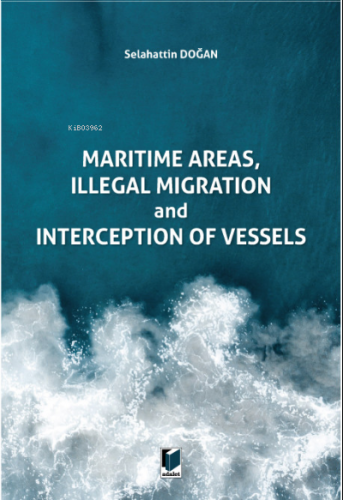9786257595889
569074

https://www.sehadetkitap.com/urun/maritime-areas-illegal-migration-and-interception-of-vessels
Maritime Areas, Illegal Migration and Interception of Vessels
313.20
Despite the fact that it has gradually been deprived of its initial dominance, the principle of freedom of the high seas has long been and still is a basic principle of the current maritime law. The freedom of high seas does belong to each States, including landlocked States. The principle also provides free navigation to the States that of non-recognized. Moreover, the right to overflight as well as laying cables, pipelines, and enjoyment of the sea resources are not subject to the exclusive jurisdiction of certain State or States. The usage of high seas is considered as in the character of res communis. Even if migration and crimes committed upon seas are longstanding incidents, recent development in navigation and struggles in many regions have escalated smuggling and trafficking activities. Migration has become one of the most common incidents to be faced in the seas. Recent incidents in the Mediterranean Sea demonstrate the importance of well-established and well-enforced international rules. Rescue operations for persons in imminent danger and interdictions against vessels carrying illegal migrants requires necessary regulations, or adequate interpretation. In order to protect the migrants' life and fundamental rights, international provisions must be thorough and lack of weakness, international bodies must act proactively. Push back strategy from the maritime frontier and seaworthy boat practice for migrants upon the seas are the contemporary technics, which clashes with the non-refoulement principle and the fundamental rights of the migrants and their extraterritorial application.
Despite the fact that it has gradually been deprived of its initial dominance, the principle of freedom of the high seas has long been and still is a basic principle of the current maritime law. The freedom of high seas does belong to each States, including landlocked States. The principle also provides free navigation to the States that of non-recognized. Moreover, the right to overflight as well as laying cables, pipelines, and enjoyment of the sea resources are not subject to the exclusive jurisdiction of certain State or States. The usage of high seas is considered as in the character of res communis. Even if migration and crimes committed upon seas are longstanding incidents, recent development in navigation and struggles in many regions have escalated smuggling and trafficking activities. Migration has become one of the most common incidents to be faced in the seas. Recent incidents in the Mediterranean Sea demonstrate the importance of well-established and well-enforced international rules. Rescue operations for persons in imminent danger and interdictions against vessels carrying illegal migrants requires necessary regulations, or adequate interpretation. In order to protect the migrants' life and fundamental rights, international provisions must be thorough and lack of weakness, international bodies must act proactively. Push back strategy from the maritime frontier and seaworthy boat practice for migrants upon the seas are the contemporary technics, which clashes with the non-refoulement principle and the fundamental rights of the migrants and their extraterritorial application.
Yorum yaz
Bu kitabı henüz kimse eleştirmemiş.














